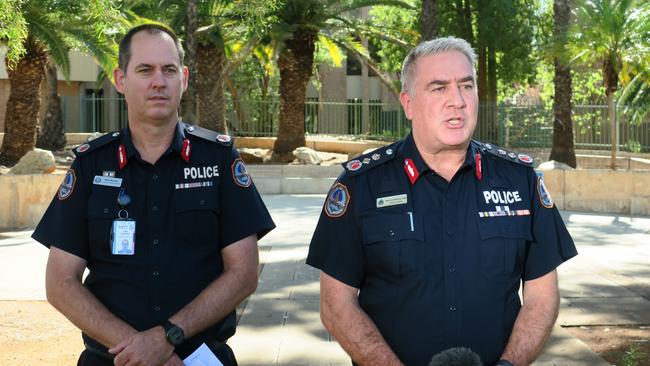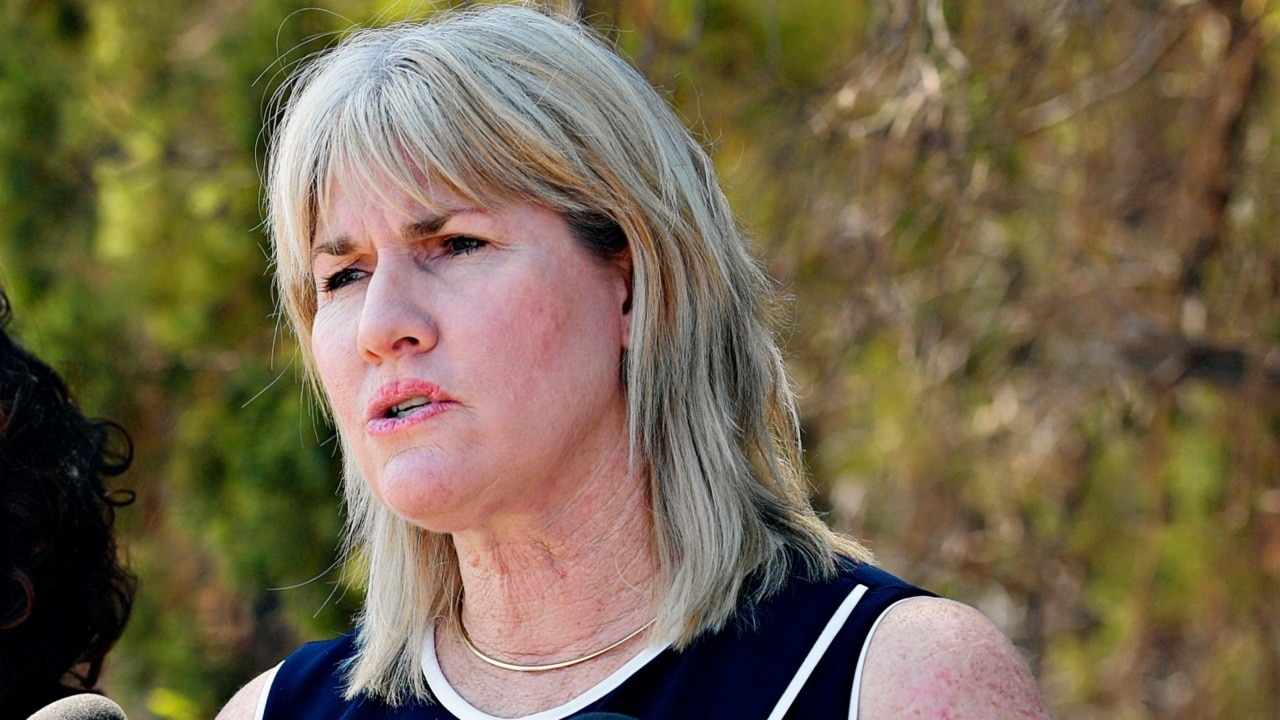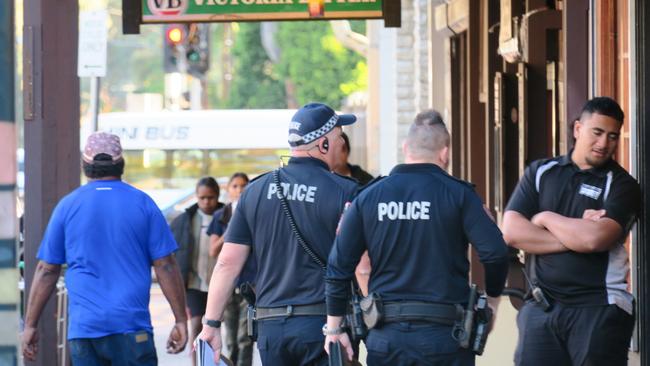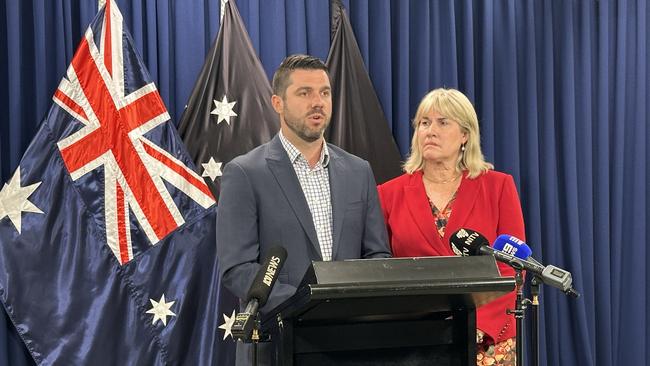Night curfew after brawls and attacks on police in Alice Springs
The NT police commissioner ordered the snap curfew after ‘senseless violence’ in recent days, but the Children’s Ground organisation maintained ‘punitive policies’ do not work.

Authorities in Alice Springs will work to help thousands of Aboriginal people return to their remote communities after an outbreak of crime and violence that led police to impose a three-day 10pm-6am curfew within the town limits.
An Alice Springs woman was in hospital with knife wounds on Monday after her cousin allegedly attacked her outside Alice Springs Town Council at the weekend.
A police officer was also recovering in hospital with a fractured leg and arm after he was run over in a wild weekend in the central Australian town. Four off-duty police officers were attacked and robbed by a mob as they walked home on Saturday night.
Earlier in the evening, up to 80 people brawled and attacked police in the town council gardens.

Alice Springs – population 12,600 – has up to 5000 visitors this week in part because of the annual show, a travelling carnival featuring amusement rides and arcade-style games. It is also NAIDOC Week, an annual celebration of Indigenous culture.
In Alice Springs the events include free entertainment for children, daytime concerts, Arrernte story time and a free barbecue.
NT Police Commissioner Michael Murphy said the curfew was tailored to give people time to leave the central business district after the last NAIDOC event finished each day.
The only businesses open after 10pm in the centre of Alice Springs were fast food restaurants and licensed premises, he said.
While a curfew during the last school holidays applied only to children, Mr Murphy said people involved in the latest unrest were “predominantly adults” so the ban was on everyone. People would still be allowed to enter the centre of town to buy fast food, if they were fleeing domestic violence, if they needed to be there for work or were caring for a family member.
“We’ve got anything up to 5000 additional people in town,” Mr Murphy said on Monday.
“One of the main risks is here, in the CBD, when people congregate. A lot of them don’t have safe places to sleep. So they’re here in the river.”

Mr Murphy said helping people who needed to go home was a priority. “So that’s what we need to focus on and work with NGOs (non-government organisations) and other government agencies to make sure they’re looked after,” he said.
“And if they need to go back to their communities after the show and after NAIDOC, we will help them and support that.”
Mr Murphy said further alcohol restrictions were a possibility for Alice Springs.
He said police were relying on the “really strong leaders” of Alice Springs to help police and government find a lasting solution to the town’s strife. He included the town council and Indigenous leaders.
“This is the short-term relief.” he said.
“Policing is a short-term relief. The longer-term solution is in community.”
The latest curfew – applied under NT legislation that came into effect in June – means police will patrol the centre of Alice Springs from 10pm to 6am for the next three nights, ensuring only people with a lawful reason are in the area.
“The seriousness of the events over a short period of time concerns me greatly,” Mr Murphy said. “We see senseless violence … I need leadership from across the community to engage their people and make sure their people are safe.”
The four off-duty police officers robbed at the weekend included a young woman who had just graduated from the Darwin police academy. Her first day of work was going to be on Wednesday.

NT Chief Minister Eva Lawler said on Monday: “The offending and behaviour that we have seen over the last 96 hours will not be tolerated.
“We want to stamp out this poor behaviour.”
Children’s Ground – the philanthropic organisation chaired by Alice Springs elder William Tilmouth – criticised the latest curfew as more “fly-in, fly-out politics”.
“Since the first Mparntwe (Alice Springs) curfew in March 2024, Territory and federal governments continue to refuse to meaningfully invest in First Nations communities and young people. The fly-in fly-out politics of the past four months have been about nothing but politics. It has not been about our children,” Children’s Ground said in a statement on Monday night.
“Punitive policies that focus on policing, crisis-management and maintaining the status-quo – these policies, and this approach, do not work.
“To say that non-government organisations have to ‘step up’ is an insult. Children’s Ground is forced to use philanthropic funding to deliver employment, early childhood education and access to basic services.”




